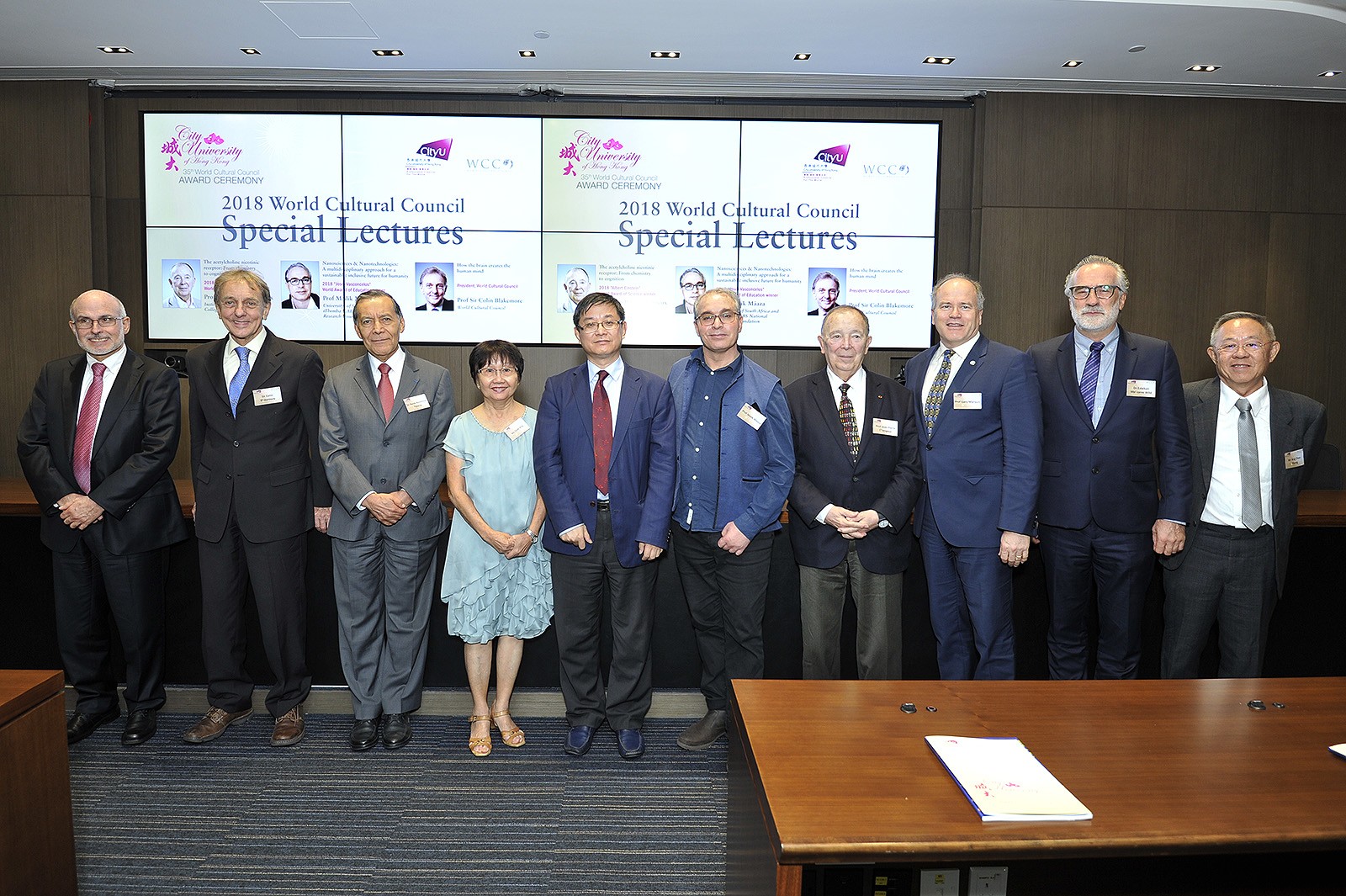Lectures by World Cultural Council President and awardees
The President of the World Cultural Council (WCC) and the two winners of the 35th WCC Award delivered special lectures at City University of Hong Kong (CityU) on 7 and 8 November.
This is the first time that the WCC international awards were hosted in Hong Kong and the Greater China region.
According to Professor Jean-Pierre Changeux, the 2018 Albert Einstein World Award of Science Winner, the study on nicotinic receptor illustrates how the brain may be viewed as an extremely elaborate chemical system.
At the special lecture titled “The acetylcholine nicotinic receptor: from chemistry to cognition”, he said this view opened a new understanding of the brain from the molecular to the cognitive level with important medical, societal and ethical applications. It also led to the discovery of allosteric modulation, he said.
As Emeritus Professor of Neuroscience at the Institut Pasteur and Collège de France, Professor Changeux was recognised by the WCC jury for the significant impact that his research has had on healthcare and our understanding of human neural processes.
Professor Malik Mâaza, the 2018 José Vasconcelos World Award of Education Winner, delivered another special lecture, titled “Nanosciences & Nanotechnologies: A multidisciplinary approach for a sustainable inclusive future for humanity”.
He said nanotechnologies were attracting increasing levels of investment from governments around the globe and had replaced ICT-induced energy and biotechnology for tackling climate change. He urged scientists around the world to address the problem together despite cultural differences and historical conflicts.
Professor Mâaza of the University of South Africa (UNISA) and iThemba LABS-National Research Foundation, South Africa is recognised for his work in promoting education for societal development and sustainability and his commitment to training and mentoring young scientists on the African continent.
Professor Sir Colin Blakemore, President of WCC, at his lecture titled “How the brain creates the human mind” said understanding neuronal circuits was important as every second of our lives contains 1 million connections of neurons. He concluded that the mind was a computational process and that vision was a computational task.
WCC is a non-profit international organisation based in Mexico. It grants the annual Albert Einstein World Award of Science, the biennial José Vasconcelos World Award of Education, and the Leonardo da Vinci World Award of Arts to personalities who have recorded outstanding achievements in related fields.
It aims to promote tolerance, peace and fraternity, seeking to encourage the use of science, art and education to further the well-being of humanity.


